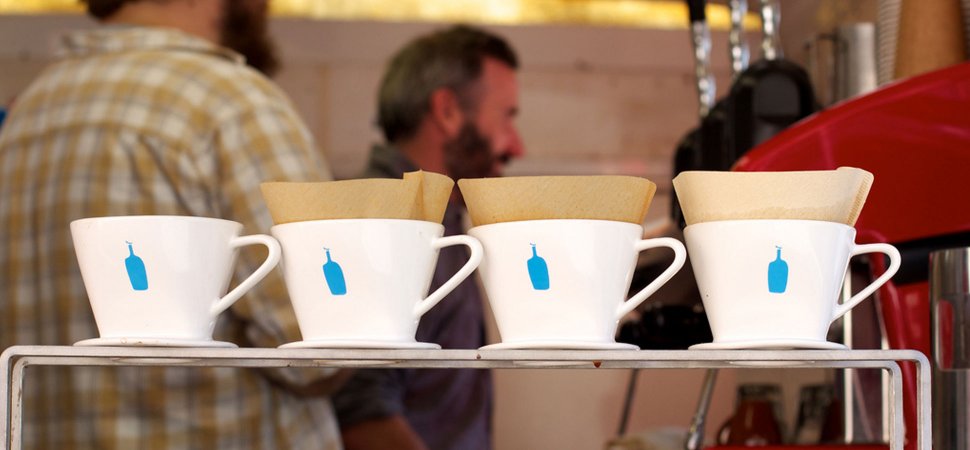Franchising, retail, business

28/08/2014
Can independent retailers stand up to the big-box stores and online behemoths? Yes--and it may not be so hard to do so after all.
At IDEO, a design and innovation consultancy based in Palo Alto, Calif., it's common practice for staffers to send out global, company-wide emails asking a single question. One recent email read simply, "Why would you buy something in a store versus getting it online?"
Within half an hour, more than a hundred responses had arrived. Two words stood out: Fun. Expert.
That, says IDEO partner Dana Cho, tells you all you need to know about the war between mammoth (and even not-so-mammoth) online retailers and the independent shops trying to succeed with old-fashioned merchandising and customer service. "Fun retail experiences are almost always physical," says Cho. "It can be a stretch to call online shopping fun." Putting yourself in the hands of an expert can be both a luxury and a relief, and it's far more likely to happen in a physical store than online.
"I think the small merchants are in a very favorable position," says Lee Peterson, executive vice president of brand strategy and design at WD Partners, a Dublin, Ohio retail consulting firm. "They can provide more intimacy in customer contact, which is where the big companies have taken their eye off the ball for 30 years."
Creating fun
Fun, of course, means different things to different people. To hear Cho and other retail specialists tell it, an appealing shopping experience can be more about sociability and less about cocktails and DJs, although those are fine, too. Likewise, store associates can be peddling anything from coffee to running shoes. What counts is that they are truly well-informed and enthusiastic, and that the customer's best interest--not the sales commission--is front and center. "The most important thing is to treat customers as if every single one is golden," says Peterson. "Just try that on a mass scale. But if you're small, it's not so hard."
Blue Bottle coffee, says Peterson, excels at both fun and expertise, even though, to the non-convert, the simple act of buying a coffee at Blue Bottle seems downright painful. "It takes a while," Peterson admits. "When they do cappuccino it takes forever." But caffeine addicts get to hang out in line with other coffee enthusiasts. In such a context, waiting becomes a social experience.Likewise at Columbus, Ohio-based Jeni's Splendid Ice Creams, which feature friendly hipsters behind the counters, pretty casework, and lots of subway tile. Jeni's sells unique flavors such as lime cardamom frozen yogurt and pineapple upside-down cake ice cream, which can't help but prompt conversation. "It's kind of like an ice cream tasting party with some unusual sensory stuff going on, and you're reacting with people of every stripe," says Peterson.
Even Trader Joe's, a grocery store, has found a way to be fun. Each store hides a stuffed animal somewhere, and the kid who finds it gets a free lollipop or other treat. "It's so easy!" says Cho. "Any store can do this. My kids think of any other shopping as an errand, but Trader Joe's is fun."
Becoming the expert
Other stores, like JackRabbit of New York, and San Francisco's Heath Ceramics, play on their ability to connect customers to experts--which some customers, of course, will find fun. JackRabbit sells running shoes, but the experience of buying them is completely different from what you’d get online. At JackRabbit, the salespeople film each customer running on a treadmill, analyze his or her stride and running habits, and help pick the shoe that will work best.
At Heath, customers feel as if they’re purchasing a bit of the legacy not only of Edith Heath, the potter who started the company in 1948, but also that of Catherine Bailey and Robin Petravic, who purchased the company from the Heath estate after they became disenchanted with their careers in industrial design. Heath had her first major show in 1944, at the California Palace of the Legion of Honor. By 1949, her studio, specializing in what's now known as mid-century modern, produced 100,000 pieces a year, supplying high-end department stores and restaurants.
The current owners, "have an amazing story about why they left their other professions and took a huge risk," says Cho. "It's about them. It's their personality that’s imbued in the experience, and that's what makes people want to go back." The pottery is made in factories in Sausalito, Calif., and San Francisco, and Cho says people visit the factory store to be closer to the production process and to occasionally meet some of the people who make the pottery.
Heath Ceramics now carries other products, such as pepper mills and table linens, from companies that share its commitment to high-quality design and materials and local production. That's another advantage that small retailers enjoy, says Paco Underhill, founder of consulting firm Envirosell and author of What Women Want: The Science of Female Shopping. Big companies can only use vendors that can fill really big orders - say 20,000 pieces at a time. "That's the only way they can make their supply chain process work," Underhill says. "The local merchant has the ability to be nimble, and the ability to source." By doing so, small merchants buil real relationships--with their suppliers and customers. And they create fun along the way.
By:http://www.inc.com/kimberly-weisul/the-only-two-things-that-matter-for-retailers.html